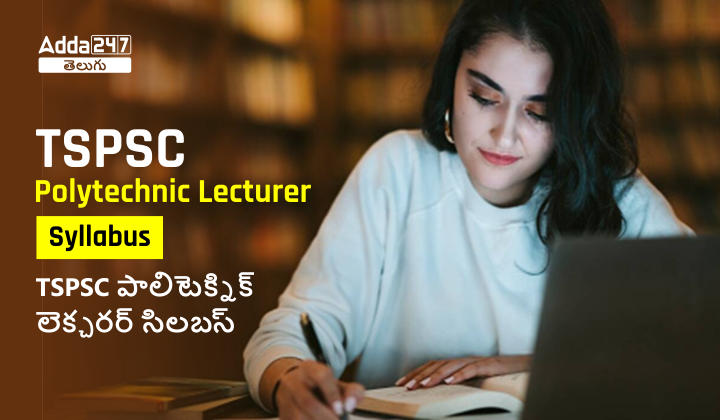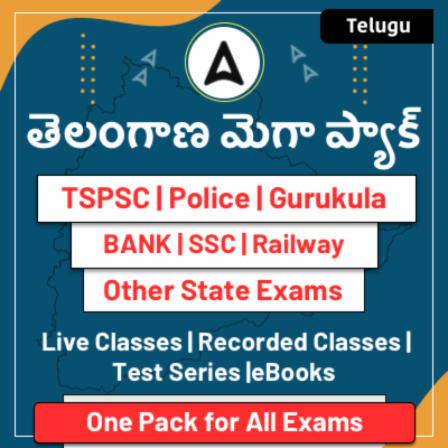TSPSC Polytechnic Lecturer Syllabus | TSPSC పాలిటెక్నిక్ లెక్చరర్ సిలబస్
తెలంగాణ రాష్ట్ర పబ్లిక్ సర్వీస్ కమిషన్ 7 డిసెంబర్ 2022న అధికారిక వెబ్సైట్లో 247 ఖాళీల కోసం TSPSC పాలిటెక్నిక్ లెక్చరర్ నోటిఫికేషన్ను విడుదల చేసింది. TSPSC పాలిటెక్నిక్ లెక్చరర్ పరీక్షా 04, 05, 06 & 08 సెప్టెంబర్ 2023 తేదీలలో నిర్వహించనున్నారు. TSPSC పాలిటెక్నిక్ లెక్చరర్ పరీక్షకు హాజరు కావాలనుకునే అభ్యర్ధులు TSPSC పాలిటెక్నిక్ లెక్చరర్ పరీక్షా సిలబస్ పై అవగాహన కలిగి ఉండాలి. TSPSC పాలిటెక్నిక్ లెక్చరర్ వివరణాత్మక సిలబస్ ఇక్కడ అందించాము.

TSPSC పాలిటెక్నిక్ లెక్చరర్ అవలోకనం 2023
TSPSC పాలిటెక్నిక్ లెక్చరర్ పరీక్షా 04, 05, 06 & 08 సెప్టెంబర్ 2023 తేదీలలో నిర్వహించనున్నారు. TSPSC పాలిటెక్నిక్ లెక్చరర్ పరీక్ష అవలోకనం దిగువ పట్టికలో అందించాము.
| సంస్థ | తెలంగాణ పబ్లిక్ సర్వీస్ కమిషన్ |
| ఖాళీ పేరు | పాలిటెక్నిక్ లెక్చరర్ |
| ఖాళీ సంఖ్య | 247 |
| నోటిఫికేషన్ విడుదల | 7 డిసెంబర్ 2022 |
| వర్గం | సిలబస్ |
| పరీక్షా తేదీ | 04, 05, 06 & 08 సెప్టెంబర్ 2023 |
| పరీక్షా విధానం | ఆన్ లైన్ |
| ఉద్యోగ ప్రదేశం | తెలంగాణ |
| అధికారిక వెబ్సైట్ | tspsc.gov.in |
TSPSC పాలిటెక్నిక్ లెక్చరర్ పరీక్షా సరళి 2023
TSPSC పాలిటెక్నిక్ లెక్చరర్ పరీక్ష ప్రక్రియలో వ్రాత పరీక్ష మరియు పత్రాల ధృవీకరణ ఉంటుంది.
- TSPSC పాలిటెక్నిక్ లెక్చరర్ పరీక్షా రెండు పేపర్లను కలిగి ఉంటుంది.
- ఒక పేపర్ 150 మార్కులుకు ఉంటుంది.
- ఇంకొక పేపర్ 300 మార్కులకు ఉంటుంది.
- ఒక్కో పేపర్ వ్యవధి 150 నిమిషాలు.
| Paper | Names of the Subjects | Number of Questions | Total Marks | Exam Duration |
| Paper-I | జనరల్ స్టడీస్ మరియు జనరల్ ఎబిలిటీస్ | 150 | 150 | 150 Min |
| Paper-II | సంబంధిత సబ్జెక్ట్లు | 150 | 300 | 150 Min |
| Total | 300 | 450 | 300 Min | |
Syllabus for Paper 1- General Studies and General Abilities | జనరల్ స్టడీస్ మరియు జనరల్ ఎబిలిటీస్ సిలబస్
1. కరెంట్ అఫైర్స్ – ప్రాంతీయ, జాతీయ మరియు అంతర్జాతీయ.
2. అంతర్జాతీయ సంబంధాలు మరియు సంఘటనలు.
3. జనరల్ సైన్స్; సైన్స్ అండ్ టెక్నాలజీలో భారతదేశం సాధించిన విజయాలు.
4. పర్యావరణ సమస్యలు; విపత్తు నిర్వహణ- నివారణ మరియు ఉపశమన వ్యూహాలు.
5. భారతదేశం మరియు తెలంగాణ ఆర్థిక మరియు సామాజిక అభివృద్ధి.
6. భారతదేశం యొక్క భౌతిక, సామాజిక మరియు ఆర్థిక భౌగోళిక శాస్త్రం.
7. తెలంగాణ ఫిజికల్, సోషల్ మరియు ఎకనామిక్ జియోగ్రఫీ మరియు డెమోగ్రఫీ.
8. ఆధునిక భారతదేశం యొక్క సామాజిక-ఆర్థిక, రాజకీయ మరియు సాంస్కృతిక చరిత్ర ప్రత్యేక దృష్టితో
భారత జాతీయ ఉద్యమం.
9. తెలంగాణ సామాజిక-ఆర్థిక, రాజకీయ మరియు సాంస్కృతిక చరిత్రపై ప్రత్యేక దృష్టి తెలంగాణ రాష్ట్ర ఉద్యమం మరియు తెలంగాణ రాష్ట్ర ఏర్పాటు.
10. భారత రాజ్యాంగం; భారత రాజకీయ వ్యవస్థ; గవర్నెన్స్ అండ్ పబ్లిక్ పాలసీ.
11. సామాజిక మినహాయింపు; లింగం, కులం, తెగ, వైకల్యం మొదలైన హక్కుల సమస్యలు మరియు విధానాలు.
12. తెలంగాణ సమాజం, సంస్కృతి, వారసత్వం, కళలు మరియు సాహిత్యం.
13. తెలంగాణ రాష్ట్ర విధానాలు.
14. లాజికల్ రీజనింగ్; అనలిటికల్ ఎబిలిటీ మరియు డేటా ఇంటర్ప్రెటేషన్.
15. ప్రాథమిక ఇంగ్లీష్. (10వ తరగతి స్టాండర్డ్)
Paper – II: Concerned Subject Syllabus | సంబంధిత సబ్జెక్ట్ సిలబస్
1. Architectural Engineering (Degree Level)
- Basic Design
- Building Materials
- Engineering Mechanics
- History and Architecture
- Surveying and Site Studies
- Water supply and Sanitary Engineering
- Landscape design and site planning
- Building Services
- Sources of Building
- Sociology of Human settlements
- Town Planning
- Advances Construction
- Computer Applications
2. Automobile Engineering (Degree Level)
- Heat Transfer and Thermodynamics
- Automobile Power Plants
- Strength of Materials
- Fluid Mechanics and Hydraulic Machinery
- Automobile Instrumentation
- Automobile Chassis and Body Engineering
- Automobile Transmission and Control systems
- Automobile Electrical Systems
- Material Science
- Kinematics and Dynamics of Machines
- Design of Automobile Parts
- Production Technology
- Industrial Engineering & Management
- Electric vehicles
- Transport Management and Legal aspects of Motor Transport
- Farm tractors
- Special Purpose Vehicles
- Automobile Electronics
- Automobile Servicing and Maintenance
3. Bio Medical Engineering (Degree Level)
- Respiratory Measurements and Aid
- Ventilators
- Audiometry
- Electro-Surgical Equipment: Electro – Surgical Units
- Fibre Optics
- Ophthalmic Instrumentation
- Anesthesia Equipment, Boyle’s Apparatus, Gas Distribution Systems.
- Ultrasound Applications for Surgery
- Introduction to Bio-Medical Instrumentation.
- Amplifiers for Bio-Medical applications
- Electro-encephalography
- Blood Pressure and blood flows
- Phonocardiography
- Radiation energy distribution
- Methods of Chemical analysis
- Electrical factors in Hospital Design
- Ultrasonics
- Magnetic Resonance Imaging:
- Computed Tomography
- Radio Nuclide Imaging
- Medical Thermography
- Position emission tomography
- Cardioverters
- Implantable pacemaker
- Biomaterials
- Prosthetic Heart Valves:
- Types of mechanical Valves
- Hemodialyze
- Physical Therapy Equipment.
- Nernst equation
- Electrical Activity of the heart
- Electrical activity of skeletal muscles-motor unit potentials
- Introduction to bioelectric Phenomena of hearing
- Interaction between Engineering and life sciences
- Application of Engineering concepts and methods for understanding Physiological systems.
- Electrophysiology
- Physiological signals, Characteristics, Basis of ECG, EMG, EEG and qualitative treatment of
instrumentation for measuring these signals. - Biopotential, Electrodes, Electrode – Electrolyte Interface. Internal electrodes like needle
electrodes and microelectrodes. - Equivalent circuit Properties.
- Broad classification of Biomedical Instrumentation for Clinical practice
4. Chemical Engineering (Degree Level)
- Fluid Mechanics
- Heat Transfer
- Mass Transfer
- Reaction Engineering
- Thermo Dynamics
- Mechanical Operations
- Process Technology
- Materials and Energy Balances
- Instrumentation and Process Control
- Material Technology
- Environmental Studies and Pollution Control Engineering
- Energy Technology & Plant Operation
5. Chemistry (Post Graduate Level)
Inorganic Chemistry
- Atomic structure and chemical bonding
- Chemistry of main group (I to VII & Nobel gases) elements
- Chemistry of transition elements and inner transition elements.
- General principles of metallurgy
- Coordination Chemistry
- Stability of metal complexes
- Reaction mechanism of metal complexes
- Metal carbonyls, Nitrosyls and Metallocenes – Structure and bonding
- Bio-inorganic chemistry
- Analytical chemistry
Physical Chemistry
- Solutions and colligative properties
- Acids & Bases
- Thermo Dynamics
- Electrochemistry
- Quantum Chemistry
- Chemical Kinetics
- Photo Chemistry
- Solid state chemistry
Organic Chemistry
- IUPAC nomenclature of organic molecules. Isomerism – classification of isomers
- alkane, alkenes, alkynes
- Stereo chemistry
- Introduction to conformational isomerism, Klyne
- Nature of bonding in organic molecules and aromaticity
- Reactive intermediate
- Organic reaction mechanism
- Oxidation
- Reductions
- Heterocyclic chemistry
- Alkaloids and Terpenoids
- Organic photochemistry
- Pericyclic reactions
- Basic principles, concepts of UV, IR, H1NMR, C13NMR and Mass spectroscopic
methods – structure determination of organic compounds by UV, IR, H1NMR, C13NMR
and Mass spectroscopic methods. - Green chemistry
6. Civil Engineering (Degree Level)
- Building Materials And Construction
- Strength of Materials And Theory of Structures
- Cement Concrete and Steel Structures
- Fluid Mechanics and Hydraulics
- Hydrology and Water Resources Engineering
- Environmental Engineering
- Transportation Engineering
- Soil Mechanics and Foundation Engineering
- Estimation, Costing and Construction Management
- Construction Management
- Surveying
7. Electrical and Electronics Engineering (Degree Level)
- Electric Circuits and Fields
- Electrical Machines
- Power Systems
- Control Systems
- Electrical and Electronic Measurements
- Analog and Digital Electronics
- Power Electronics
- Electronic Drives
- Utilization
8. Electronics and Communication Engineering (Degree Level)
Section I -Engineering Mathematics
- Linear Algebra
- calculus
- Network solution methods
- Differential Equations
- Complex Variables
- Probability and Statistics
- Numerical Methods
Section II-Networks
- Network solution methods
- Electronic Circuits
- Analog Circuits
- Amplifiers
Section III
- Digital Circuits
- Combinatorial circuits
- Sequential Circuits
- Microprocessor (8085)
- Signals & Systems
- Linear Time-Invariant (LTI) Systems
- Control Systems
- Tools and techniques for LTI control system analysis
Section-IV
- Communications
- Analog Communication System
- Digital Communication System
- Digital modulation schemes
- Electro Magnetics
9. Electronics and Instrumentation Engineering (Degree Level)
- Communications
- Analog Electronics
- Digital Electronics
- Electrical and Electronic Measurements
- Process Instrumentation
- Control Systems and Process Control
- Analytical, Optical and Biomedical Instrumentation
- Embedded Systems
10. Foot wear Technology (Degree Level)
- Classification
- Anatomy of Foots
- Foot Measurements
- Lasts-Materials-classification
- Foot Wear Designing
- Clicking
- Pre fitting and Closing-Splitting-Identification
- Foot wear Materials
- Bottoming operations
- Finishing Operations
- Upper Finishing Operations
- Different Footwear Construction
- Speciality Foot Wear
- Testing
- Quality Control
- Leather Goods and Garments
- Hand Tools used in Footwear Manufacturing
- Foot Wear Machines
- Costing
- Leather Making-Operations involved in making Leather
11. Geology (Post Graduate Level)
- Geomorphology & Field Geology
- Crystallography, Mineralogy& Optical Mineralogy
- Structural geology and Geotectonics
- Palaeontology & Stratigraphy
- Igneous Petrology & Geochemistry
- Metamorphic Petrology & Thermodynamics
- Sedimentology & Petroleum Geology
- Ore Genesis, Mineral Deposits and Mineral economics
- Environmental Geology
- Engineering Geology
- Mineral Exploration and Fuels
- Hydrogeology
- Photo Geology, Remote Sensing, GIS and GPS
- Mining Geology
12. Letter Press ( Printing Technology) (Degree Level)
- Printing Processes, Paper & Ink Technology
- Offset Process, Gravure Process & their Surface Preparation
- Flexography, Screen Printing & their Surface Preparation
- Pre-Press Technology
- Print Finishing, Packaging & Converting
- Specialty Printing Technologies, Advertising & Quality Control
13. Mechanical Engineering (Degree level)
Section I: Applied Mechanics and Design
- Engineering Mechanics
- Strength of Materials
- Theory of Machines
- Vibrations
- Machine Design
Section II: Fluid Mechanics and Thermal Sciences
- Fluid Mechanics
- Heat Transfer
- Thermo Dynamics
- Power Engineering
- I.C. Engines
- Refrigeration and Air-Conditioning
- Turbomachinery
Section III: Materials, Manufacturing and Industrial Engineering
- Engineering Materials
- Metal Casting
- Metal Forming
- Joining Processes
- Machining and Machine Tool Operations
- Metrology and Inspection
- Computer Integrated Manufacturing
- Production Planning and Control
- Inventory Control
- Operations Research
14. Metallurgical Engineering ( Degree Level)
- Mineral processing and principles of extractive metallurgy
- Physical metallurgy and heat treatment
- Metallurgical thermodyanamics
- Mechanical metallurgy
- Iron & steel making:
- Non ferrous extractive metallurgy
- Mechanical working of metals
- Powder metallurgy of metals
- Non – metallic materials
- Material processing (casting & welding
- Furnace technology & pyrometry
- Non destructive testing
- Super alloys
15. Packing Technology (Degree Level)
- Packing Basics
- Packing Materials
- Testing of packaging materials
- Packaging of pharmaceuticals
- Product Packaging
- Product Designing
- Package Printing
- Packaging processes and machines
- Packaging management and economics
- Eco-friendly and export packaging
16. Pharmacy (Degree Level)
- History of Pharmacy
- Pharmacy Act
- Methods of Sterilization and test for sterility
- Methods of classification of crude drugs; Adulteration and evaluation of crude drugs.
- Introduction to secondary metabolites
- Pharmacognosy of Senna
- Principles and methods of different microbiological assay
- Theory and applications of rheology
- Physico-Chemical, formulation and biological factors effecting drug absorption
- Preformulation Studies
- Drug Stability
- Radiopharmaceuticals
- Structure activity relationship, synthesis, chemical nomenclature and uses of following classes
of drugs - Pharmacology of Local anaesthetics
- Pharmacokinetic and Pharmacodynamic drug interactions with suitable examples
17. Physics (Post Graduate Level)
- Mathematical Methods of Physics
- Classical Mechanics
- Electromagnetic Theory
- Quantum mechanic
- Thermodynamics and statistical Physics
- Electronics
- Atomic & Molecular Physics
- Condensed Matter Physics
- Nuclear and Particle Physics
18. Tannery Engineering (Degree Level)
- Skin Proteins and Pre- tannages
- Theory of tannages
- Leather auxiliaries and post tanning Operations
- Practice of Leather Manufacture – I
Role of Machinery in Leather Processing
- Practice of Leather Manufacture – II
- Material Testing & Quality Control
- Leather Product Technology
- Organisation and Management of Leather manufacture
19. Textile Technology (Degree Level)
- Textile fibre
- Spinning
- weaving
- Woven fabric design
- Chemical processing of textiles
- Apparel production
- Textile testing
- Statistical tools and quality control
- Textile mathematics
- knitting & nonwoven technology
- Technical textile
TSPSC పాలిటెక్నిక్ లెక్చరర్ సిలబస్
పరీక్ష గురించి సాధ్యమయ్యే ప్రతి వివరాలను చదవడానికి మరియు తెలుసుకోవడానికి, అభ్యర్థులు తప్పనిసరిగా అధికారిక నోటిఫికేషన్ pdfని పూర్తిగా చదవాలి. ఇక్కడ మేము సిలబస్ pdf ను అందజేస్తున్నాము
TSPSC Polytechnic Lecturer Syllabus pdf
TSPSC పాలిటెక్నిక్ లెక్చరర్ సిలబస్ – తరచుగా అడిగే ప్రశ్నలు
ప్ర. TSPSC పాలిటెక్నిక్ లెక్చరర్ పరీక్షా లో ఎన్ని పేపర్స్ ఉంటాయి?
జ. TSPSC పాలిటెక్నిక్ లెక్చరర్ పరీక్షా లో 2 పేపర్స్ ఉంటాయి
ప్ర. TSPSC పాలిటెక్నిక్ లెక్చరర్ పరీక్షా మొత్తం ఎన్ని మార్కులకి ఉంటుంది?
జ. TSPSC పాలిటెక్నిక్ లెక్చరర్ పరీక్షా మొత్తం 450 మార్కులకి ఉంటుంది
TSPSC Polytechnic Lecturer Articles
మరింత చదవండి:
| తాజా ఉద్యోగ ప్రకటనలు | ఇక్కడ క్లిక్ చేయండి |
| ఉచిత స్టడీ మెటీరియల్ (APPSC, TSPSC) | ఇక్కడ క్లిక్ చేయండి |
| ఉచిత మాక్ టెస్టులు | ఇక్కడ క్లిక్ చేయండి |




